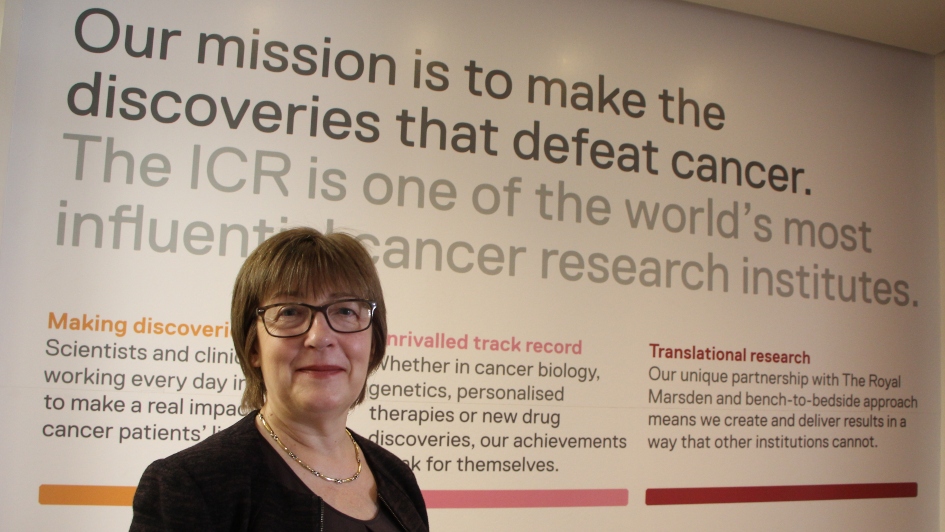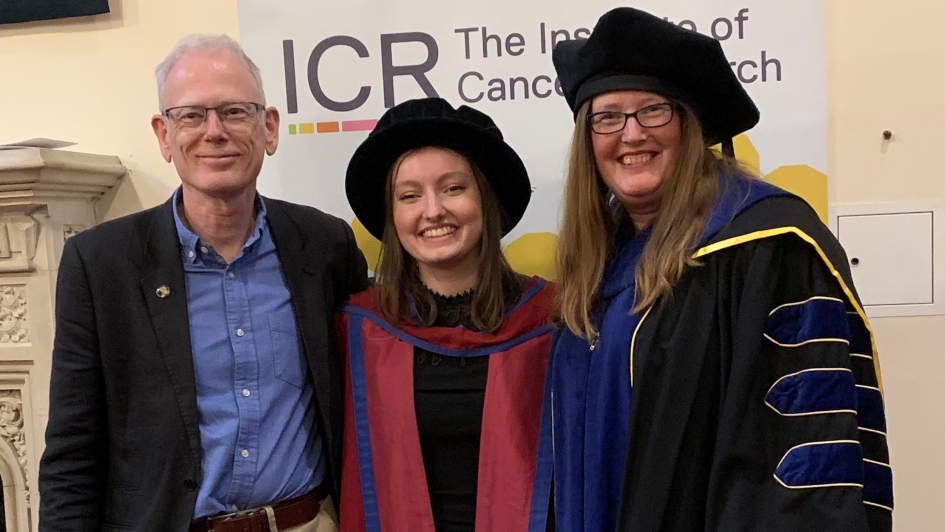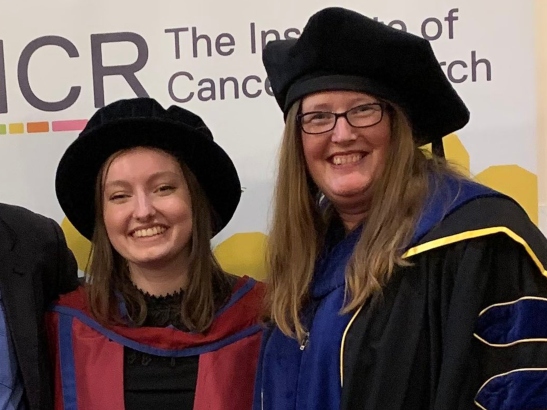
Our annual graduation ceremony is a highlight in the ICR’s calendar, but is an event we have not been able to hold since 2019 due to the Covid-19 pandemic.
The awards ceremony, which was held last month at London's Guildhall, gave us a welcome opportunity to celebrate our students’ accomplishments as well as to recognise those who have made crucial contributions to the ICR.
I am therefore delighted that the event was back this year and we were able to celebrate in person with three cohorts of ICR graduands and all those who have supported them.
Triumph over adversity
All of our graduands from all three cohorts have been impacted by the pandemic, and it is a testament to their perseverance and dedication that they have managed to complete their studies during such a difficult time.
As well as the disruption to research, due to lab closures and delays in clinical trials, our students have had to deal with the issues we all faced: merging working and living environments, isolation and the impact on loved ones.
Our clinical students deserve special mention. Many had to pause their studies to return to highly demanding frontline NHS duties.
Supporting our students
The ICR introduced a range of mechanisms over the pandemic to support our students and ensure that research students could still achieve timely submission of their thesis, adjusting deadlines where appropriate.
The ICR’s MSc in Oncology was paused for a period whilst students and staff were fully involved in clinical service delivery and then moved to a distance learning format, mirroring the interactive nature of the course as best we could whilst avoiding infection risk.
The number of new graduates prove these adjustments were successful! More than 200 graduates and their families gathered alongside researchers, teaching and learning staff and friends of the ICR at the Guildhall, where we all had an opportunity to reflect on a tough, but ultimately successful, three years.
At the ceremony our Academic Dean Professor Clare Isacke, as well as offering her warmest congratulations, acknowledged everyone in the audience who had supported our graduates and awardees as family, friends, tutors, mentors and supervisors. During the pandemic, many of our students spent a great deal of time in isolation or were isolated from their research colleagues by being called back into the hospital front line.
Despite this, they managed to show flexibility, resilience and entrepreneurship by furthering their research endeavours despite the challenges. Professor Isacke gave a very special thanks to all who provided a support network to our students when their studies were interrupted – whether it was letting them move back into the parental home, sending care packages, providing IT support, putting up with them shouting over Zoom in the bedroom, or just making those endless cups of tea.
Our mission
It was a powerful moment when the team behind the You, Me and the Big C podcast received their Honorary ICR degrees, including the family of the inspirational Dame Deborah James accepting a posthumous degree on her behalf. This was a timely reminder of what drives all that ICR does – speed to patient benefit.

Looking to the future
As well as offering an opportunity to reflect on recent successes, our graduation ceremony also provided a chance to look ahead to an exciting year ahead.
Our Chief Executive Professor Kristian Helin has been leading work to develop the ICR Strategy for the next period, and Education is of course a key part of that Strategy. We are committed to continuing to develop the ICR’s research and taught degree programmes as well as the range of support for those undertaking them.
Our MSc in Oncology is now settled in a blended format which makes the most of the flexibility offered by virtual delivery, as well as maintaining the learning and networking opportunities afforded by in-person attendance. It continues to thrive in this new delivery structure.
We remain committed to supporting each research student on a case-by-case basis to ensure satisfactory progress on their project and submission within an appropriate time frame.
One of the highlights of the 2022-2023 year will be implementing our Medical Research Council (MRC) Doctoral Training Partnership (DTP), which supports a major cohort of PhD studentships. It is an exciting prospect as we introduce a new, structured training programme that will ensure that students master the fundamentals in each of our DTP themes – Genome Stability and DNA Damage Response, Advanced Therapeutics, Radiation Oncology and Biology – alongside extensive computational training, the development of core and transferable skills and increased opportunities for peer learning.
Applications for the second cohort of the MRC DTP will open on Monday 10 October 2022 – so keep a look out for when they go live on our website!
